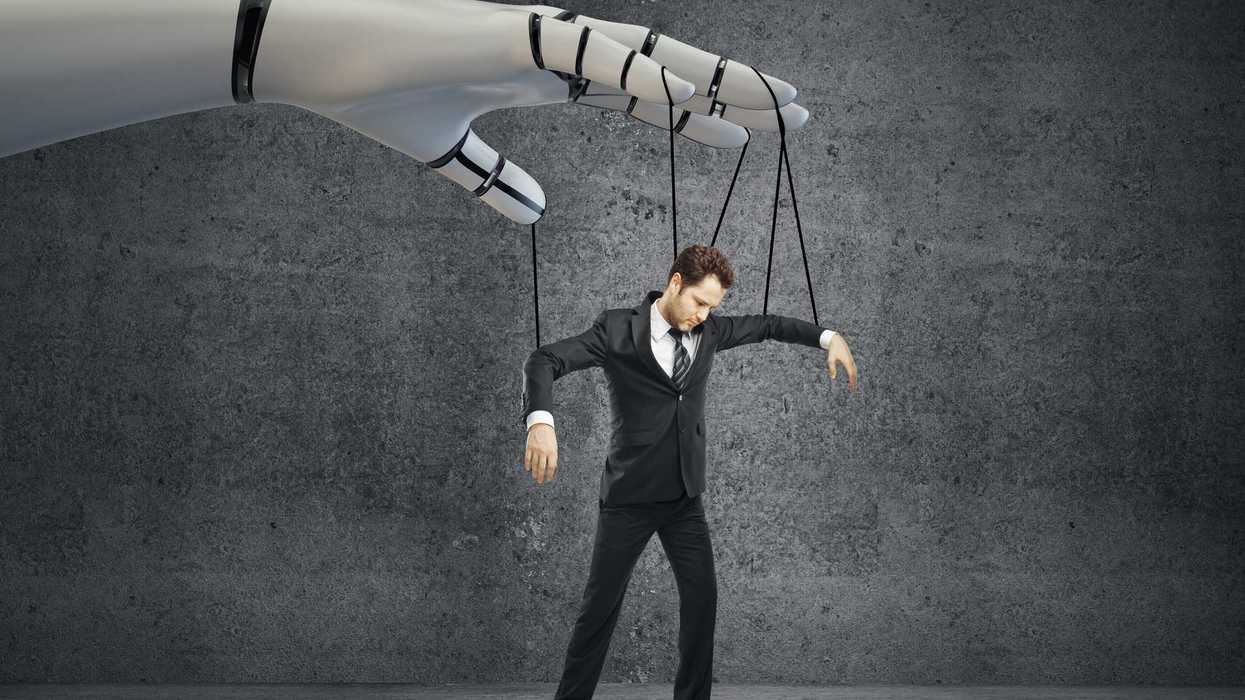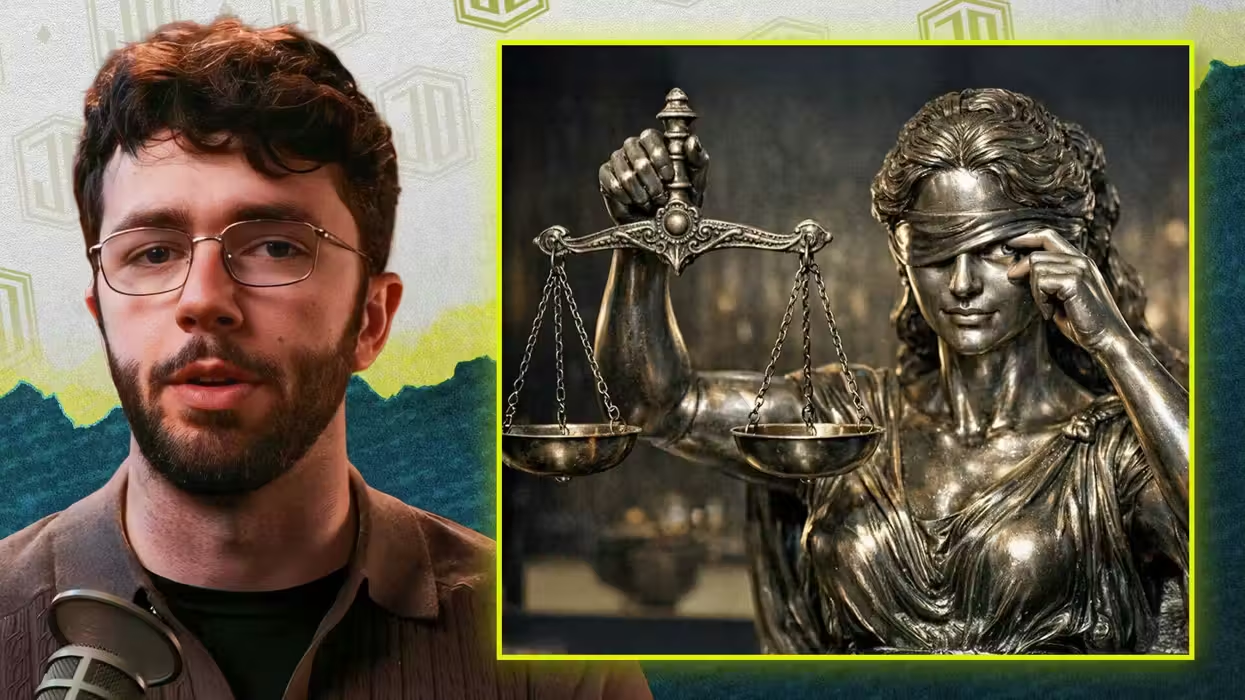
Blaze readers will likely recall the story of Iranian pastor, Youcef Nadarkhani, a former Muslim turned Christian convert who had been imprisoned since 2009 for refusing to renounce his Christian faith. Both the pastor and his supporters breathed a sigh of relief when he was released from prison in early September, however, the victory turned out to be bittersweet when the attorney responsible for Nadarkhani's release was, in turn, imprisoned.
Mohammad Ali Dadkhah, the human rights attorney who represented Pastor Youcef is now slated to serve a hefty prison sentence in what reports indicate is one of Iran's most dangerous prisons. Dadkhah had represented other religious and political prisoners and been convicted previously for such "crimes."
In a previous article for TheBlaze, Billy Hallowell wrote:
Dadkhah, who has represented Nadarkhani and who is known as a prominent human rights advocate, has allegedly been sentenced to nine years in prison for “acting against national security.” [...]
As The Blaze has reported for months, Nadarkhani’s charges were waged over his conversion from Islam to Christianity. Dadkhah’s sentencing, it seems, has resulted from his defense of the pastor and others who were detained following Iran’s disputed 2009 elections. In addition to his alleged prison sentence, the lawyer has reportedly been banned from teaching in Iranian universities and from practicing law for the next 10 years.
The beleaguered attorney's imprisonment has also sparked outrage within the human rights movements, particularly with Amnesty International. "Iranian human rights defender and lawyer Mohammad Ali Dadkhah must be immediately and unconditionally released," Amnesty said in a statement.

Amnesty asserts that Dadkhah "is the fourth member of the CHRD to have been imprisoned in the last 18 months," and that "he should never have been put on trial for his legitimate human rights activities -- the Iranian authorities must overturn his conviction and sentence and release him immediately and unconditionally." Amnesty is also calling on the authorities to "ensure he is protected from torture or other ill-treatment" as well as be provided with an attorney of his choosing. In Iranian prisons however, especially where those charged with apostasy are concerned, torture -- particularly at Evin Prison, where Dadkhah is being held -- seems par for the course.
Saeed Pourheydar, an Iranian journalist and blogger who worked for "reformist newspapers," told the International Campaign for Human Rights in Iran (ICHRI) that he was arrested twice, once in 2010 and then again 2011, and that he was held as a political prisoner in Evin's Ward 240. According to reports, Dadkah is being held in Ward 350. In a blogpost for ICHRI, Pourheydar wrote of the torture he endured during his time at Evin:
Sometimes I was physically tortured, which included beatings during interrogations, sleep deprivation, once throwing me inside a cold water barrel, or keeping me naked outside in the cold weather. Some of the mental and psychological torture included giving me false news and information, threatening me with flogging, forcing me to accept immoral charges, threatening me with arrests of my family members or giving me false news about the arrests of my wife and my father, playing my daughter’s voice during an interrogation session and telling me that my wife and my daughter were also arrested, threatening me with a long prison sentence, and banning my visitations and contacts with my family...
Pourheydar, who claims to have lost nine kilograms in one month and who suffered a heart attack following an interrogation session, also spoke of the torture fellow inmates endured. In the same ICHRI article, he wrote [caution, some of the content contains graphic descriptions]:

Many of my prisoner friends inside Evin’s Ward 350, who had prior experience in solitary cells inside Wards 209, 240, and IRGC’s Ward 2-A, had been exposed to some type of psychological, mental, or physical torture. During my time in Ward 350, I was able to talk to 19 friends who had been tortured. Most of the torture took place inside the ward affiliated with the IRGC (Islamic Revolutionary Guard Corps), and depending on what the security forces decided for the prisoner, the type and intensity of the torture differed. [...] During the talks I had with my friends, they gave me a complete description of what they went through in solitary cells. The stories I heard about the horrible psychological and physical torture provided me with new insight about how brutally the regime treats its political prisoners.
Beatings, urinating on the prisoner’s head and face, hanging the prisoner by his feet, flogging, using electric shockers, hitting sensitive spots on one’s body, and one case of horrible rape using glue, were parts of the physical torture my friends told me about. Fake executions, insults and degradation, arrests of family members, threats of arresting and raping the prisoner’s wife or daughter, threatening the prisoner with the death sentence, forcing the prisoner to take psychedelics, etc., were only a small part of the psychological and mental tortures used inside the Islamic Republic prisons that these 19 prisoners experienced. Though the number of prisoners who were tortured was far more than this number, when I was inside Ward 250, I was only able to talk to 19 individuals, some of whom were unfortunately executed later and some others who continue to serve their time there.
Regardless of what ward Dadkhah is in currently, it is clear that his life and well-being are in grave jeopardy. While human rights activists and people of goodwill around the world are speaking out and navigating diplomatic channels to advocate for his release, the record of success in such instances may not favor the embattled attorney.
Ironically, the one Islamic country that is actually seeing a decline in Islam and a push among its people -- particularly within its dissident movement -- towards Western values, is Iran. But while a hardline Islamic regime led by the Ayatollah Khamenei and President Mahmoud Ahmadinejad still exists, the odds are stacked decidedly against political prisoners in the country.

(h/t: Deseret News)








